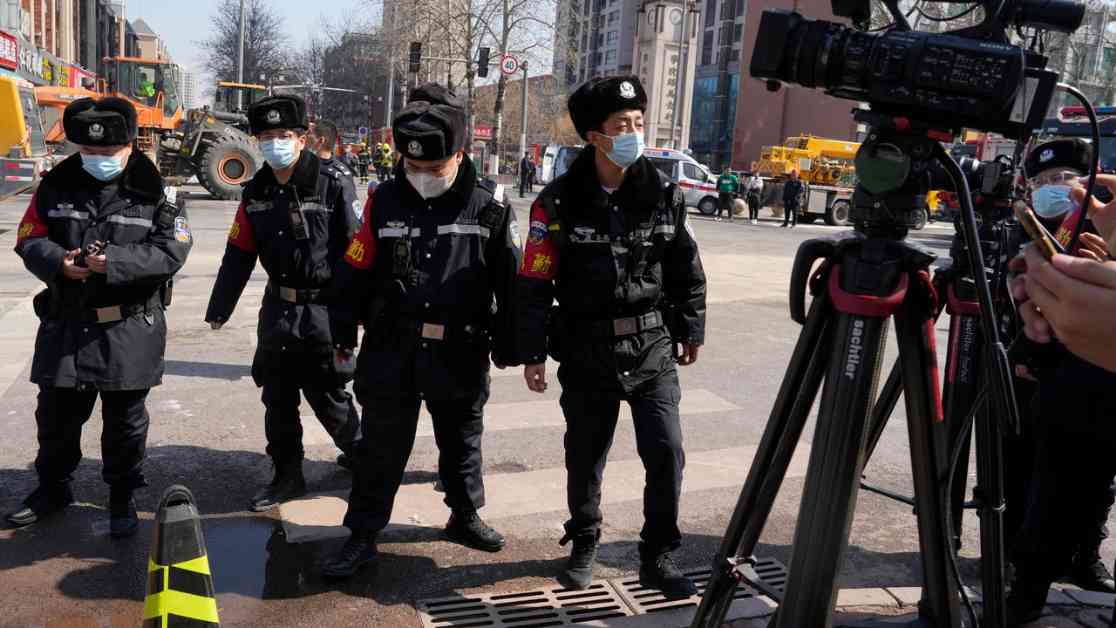China’s media landscape has long been dominated by state control, with censorship and restrictions on journalists being commonplace occurrences. However, a recent incident involving reporters from China Central Television (CCTV) being blocked from covering a deadly explosion has sparked resentment and backlash among local journalists.
State Control and Censorship in China
The incident in Yanjiao, where reporters from CCTV were prevented from reporting on a deadly explosion, highlights the extent of state control and censorship in China’s media industry. This is not an isolated incident but rather a reflection of the broader constraints that journalists in China face on a daily basis. The Chinese government tightly controls the flow of information, using censorship to shape the narrative and suppress dissenting voices.
Journalists in China are often subject to intimidation, harassment, and even imprisonment if they dare to report on sensitive issues or challenge the official government line. This environment of fear and censorship has created a culture of self-censorship among journalists, where many choose to toe the line rather than risk facing repercussions.
Resentment Among Journalists
The incident in Yanjiao has exposed the growing resentment among journalists, even those working for state-run media outlets like CCTV, towards the heavy-handed tactics of the Chinese government. The fact that even CCTV reporters were blocked from covering the explosion shows that no one is immune from state control in China’s media landscape.
Many journalists in China are frustrated with the lack of press freedom and the constant interference from government authorities in their work. They feel constrained and stifled, unable to report the truth or hold those in power accountable. This has led to a sense of disillusionment and resentment among journalists, who are increasingly pushing back against state control and censorship.
The Impact on Media Freedom
The incident in Yanjiao has once again brought to light the challenges faced by journalists in China and the broader implications for media freedom in the country. The Chinese government’s tight grip on the media not only stifles freedom of expression but also hinders the public’s right to information and transparency.
Without a free and independent media, the Chinese people are left in the dark about important events and issues that affect their lives. The censorship and restrictions imposed by the government prevent journalists from fulfilling their role as watchdogs and serving the public interest. This has serious consequences for democracy, accountability, and the protection of human rights in China.
In conclusion, the resentment of state control in China’s media is a growing issue that highlights the need for greater press freedom and respect for journalists’ rights. The incident in Yanjiao is just one example of the challenges faced by journalists in China, who continue to struggle against censorship and government interference in their work. It is essential for the Chinese government to respect media freedom, uphold journalists’ rights, and allow for a diverse and independent media landscape to thrive. Only then can the Chinese people truly be informed and empowered to participate in a democratic society.



























